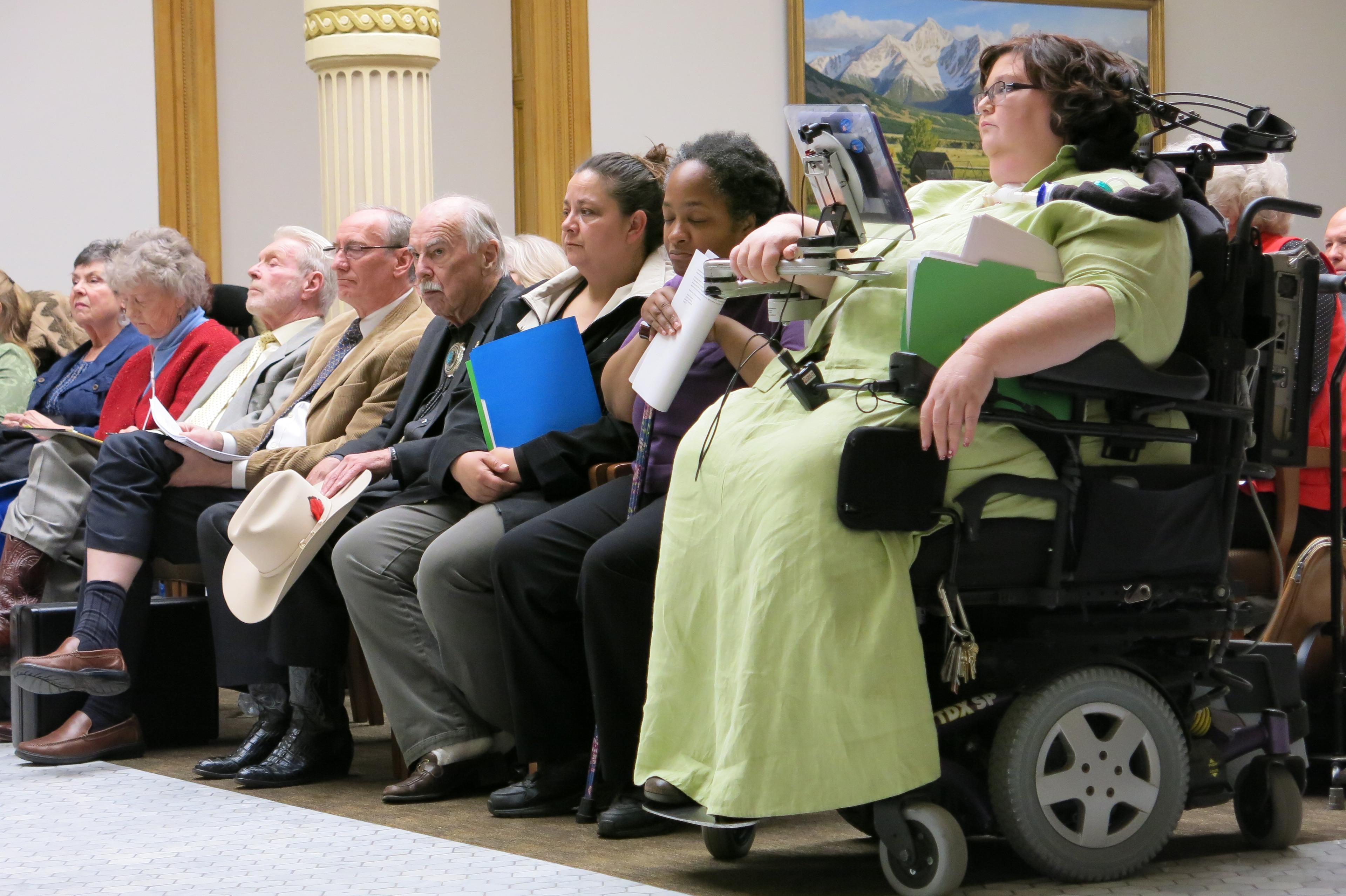

What to expect around social issues:
Whether you call it "death with dignity" or end-of-life legislation, a bill that would allow doctors to provide drugs to let terminally ill people end their lives is expected to be up for a vote after failing to pass last year. Disability rights organizations and some religious groups, including the Colorado Catholic Conference, oppose the effort, labeling it legalized suicide, and they’re expected to be back this year.
State Rep. Lois Court, D-Denver said she intends to bring the bill back. While its details are not clear, history suggests it will prompt emotional debate. The Colorado Health Institute's Allie Morgan was at last year’s hearing and described an emotional, 11-hours-long hearing: "They alternated testimony from people who were there to support it and who were there against it and it was just person after person and it was gut wrenching," she said.
The Capitol can expect another emotional social fight over abortion and funding for Planned Parenthood. Controversial video recordings by Planned Parenthood opponents around fetal tissue surfaced this year, and in November a gunman opened fire at a Planned Parenthood clinic in Colorado Springs, killing three people.
Democrats are expected to bring legislation focusing on clinic security. That’s what Planned Parenthoods’s Cathy Alderman said recently: "What form that takes we're not sure, but we'd just like to insure that when people commit crimes against healthcare providers, simply because they're providing healthcare services that they are punished to the full extent of the law."
Republicans are likely to focus on efforts that mirror a national push to defund Planned Parenthood, restrict fetal tissue used for research, and further restrict access to abortion. "What we really want to pursue is making sure that taxpayer money doesn't pay for abortion," Senate President Bill Cadman, a Republican, says.
What to expect around health insurance:
The big news this fall was the collapse of the cooperative Colorado HealthOp. It left 80,000 people scrambling for new insurance and, for Republicans, questions about the future of the state’s online insurance marketplace, Connect for Health Colorado. Republican Sen. Kevin Lundberg, has criticized the exchange and warned its leaders to be preparted to "shut it down."
A lot of Democrats disagree. Many believe the exchange and Obamacare have performed well in general, and are expected to argue they could be changed to fix problems, but not dumped as some Republicans advocate.
The other issue tied to Obamacare is the expansion of Medicaid. Colorado is one of 30 states to expand the federal health care program for the poor under Obamacare. The state shares costs for the program, and in coming years will need to pay a part of that expansion. Medicaid spending is now a quarter of the state’s general fund budget and that growth in cost makes it hard to fund other budget priorities.
"We're at a point here where we can see a future that the state government is basically converted into a healthcare and education agency, that doesn't do a particularly good job of funding its colleges, and everything else kind of goes by the wayside," said the Colorado Health Institute’s Joe Hanel.
How the state budget complicates matters:
State revenues are growing but legislators will still need to find budget cuts. That’s because when revenue growth exceeds the rate of inflation and population growth, tax refunds are triggered in accordance with the Taxpayer Bill of Rights.
On top of that, there's very complicated fight regarding the Hospital Provider Fee. It was set up by lawmakers in 2009 to generate revenue from the money hospitals generate from patients, and it accounts for about $700 million in annual revenue for the state. The fight is over whether the revenue from the fee is subject to Taxpayer's Bill of Rights restrictions.
Democrats and the governor want the $700 million exempted from the TABOR cap. That would lower the amount the state needs to refund and increase what legislators could spend on other priorities. Republicans say that move is unconstitutional and see refunds to taxpayers as a top priority.









